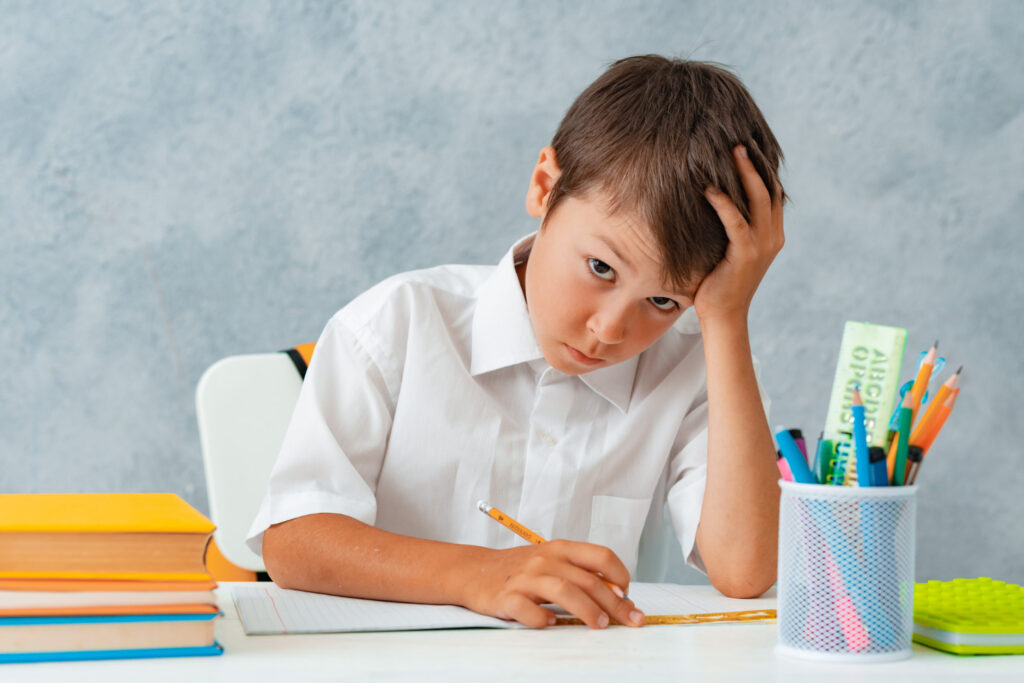
Introduction:
School anxiety is a common challenge faced by children of all ages, impacting their emotional well-being, academic performance, and overall quality of life. Whether it’s separation anxiety in preschoolers, social anxiety in adolescents, or test anxiety in high school students, understanding and addressing school-related stressors is essential for fostering a positive learning environment. In this comprehensive guide, we’ll explore strategies for alleviating school anxiety at every age, empowering parents and educators to support children’s mental health and academic success.
1. Preschoolers (Ages 3-5):
Preschoolers often experience separation anxiety when starting school or daycare, making the transition challenging for both children and parents. To alleviate preschool anxiety:
– Establish a predictable routine: Create a consistent morning routine to help your child feel more secure and prepared for the day ahead.
– Practice separation: Gradually introduce short separations from your child, such as leaving them with a trusted caregiver or family member, to build confidence and independence.
– Provide reassurance: Offer words of encouragement and reassurance, letting your child know that you’ll return to pick them up after school.
– Stay connected: Maintain open communication with your child’s teacher or caregiver to stay informed about your child’s progress and well-being.
2. Elementary School (Ages 6-11):
As children progress through elementary school, they may encounter academic pressure, social challenges, and performance anxiety. To alleviate elementary school anxiety:
– Foster a supportive environment: Create a nurturing and supportive home environment where your child feels comfortable expressing their feelings and concerns.
– Teach coping skills: Teach your child coping strategies such as deep breathing, positive self-talk, and mindfulness techniques to manage stress and anxiety.
– Encourage socialization: Encourage your child to participate in extracurricular activities, clubs, and sports to build social skills and peer relationships.
– Address academic challenges: Provide academic support and assistance when needed, and communicate with teachers to address any learning difficulties or concerns.
3. Middle School (Ages 12-14):
Middle school can be a challenging time for adolescents, as they navigate academic pressures, social dynamics, and hormonal changes. To alleviate middle school anxiety:
– Validate feelings: Validate your child’s feelings and emotions, acknowledging the challenges they may be facing during this transitional period.
– Promote self-care: Encourage healthy habits such as regular exercise, sufficient sleep, nutritious diet, and limiting screen time to support overall well-being.
– Foster independence: Empower your child to make decisions and solve problems independently, building self-confidence and resilience.
– Seek professional help: If anxiety persists or significantly impacts your child’s daily functioning, consider seeking support from a mental health professional for counseling or therapy.
4. High School (Ages 15-18):
High school students face academic demands, college preparation, social pressures, and future uncertainties, contributing to heightened anxiety levels. To alleviate high school anxiety:
– Teach time management: Help your teen develop effective time management skills to balance academics, extracurricular activities, part-time jobs, and social commitments.
– Encourage self-advocacy: Teach your teen to communicate assertively with teachers, counselors, and peers to express their needs, seek help, and advocate for themselves.
– Promote relaxation techniques: Encourage your teen to practice relaxation techniques such as yoga, meditation, or listening to music to reduce stress and promote relaxation.
– Provide college support: Offer guidance and support throughout the college application process, helping your teen research schools, prepare for standardized tests, and navigate financial aid options.

Conclusion:
School anxiety can significantly impact children of all ages, affecting their academic performance, social relationships, and emotional well-being. By understanding the unique challenges faced by children at different stages of development and implementing targeted strategies for alleviating anxiety, parents and educators can create a supportive and nurturing environment conducive to children’s overall growth and success. Remember, addressing school anxiety requires patience, empathy, and collaboration between parents, teachers, and mental health professionals to ensure every child has the opportunity to thrive academically and emotionally.

